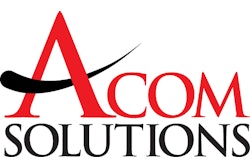Wal-Mart mandate primary driver for evolution of radio frequency identification technologies, survey shows
Atlanta, GA — March 29, 2004 — The global packaging industry is bracing itself for the rapid adoption of radio frequency identification (RFID) technologies beginning this year, with more than half of the respondents in a recent survey saying they believed that Wal-Mart's 2005 supplier mandate will be a "catalyst" for the evolution of RFID adoption in the industry.
The survey, by management consulting firm Cap Gemini Ernst & Young (CGE&Y) and Packaging Strategies, found that fewer than one in six of the survey respondents believed that RFID is "overrated." The survey was conducted among the 275 participants attending the 17th annual Packaging Strategies Summit conference last week.
More than half of respondents (51 percent) said they believe RFID is "a major business driver this year" or are initiating a program and action plan in 2004. The survey also found that while more than half of respondents (58 percent) agree that retail will be most affected by the first wave of RFID adoption by 2010, nearly one-third (31 percent) believe that the health & pharmaceutical industries will be transformed by RFID as well, leading to improved security for prescription drugs and reduced shrink/grey market losses.
"The survey illustrates that global as well as local supply chains are heeding the wake-up call to prepare for RFID by taking it one step at a time, from insight to pilot to roadmap to implementation to deployment," said Greg Cudahy, global supply chain leader for Cap Gemini Ernst & Young. "Those suppliers who go 'beyond compliance' mandates can gain the benefits of new enabling technologies such as RFID, mobility and in-store customer interaction solutions and change the game."
While the vast majority of survey respondents were U.S.-based, there was some participation from Europe (10 percent), Canada (6 percent) and Asia-Pacific (3 percent). Half of the respondents (51 percent) worked for companies with annual revenues of less than $1 billion, and nearly one-quarter of respondents (22 percent) were C-level executives.
Other survey highlights include:
- Half the packaging industry respondents (51 percent) believe that "improved product availability" will be the top benefit to consumers from RFID adoption, while less than one in five (19 percent) pointed to consumer savings stemming from reduced product costs.
- The jury is still out on the primary benefit of RFID adoption to retailers/distributors, as nearly four in ten (39 percent) chose "improved inventory turns," while another one in three (33 percent) pointed to reduced logistics costs/handling.
- According to one-third (34 percent) of survey respondents, manufacturers will benefit most from RFID adoption around "improved marketing data," while another one in six (17 percent) say there will be no benefit because RFID "is just another barcode."
- In terms of potential worries around an RFID solution for a packaging organization, almost half (46 percent) point to implementation/integration, while two in 10 look to problems with tags (21 percent) or software (18 percent) for their biggest potential headache.
- An overwhelming majority (71 percent) believe supply chain/operations should have organizational control over RFID programs, while only one in ten point to finance, sales or marketing (12 percent) or information technology (IT) (11 percent) to champion the RFID cause internally.
This latest survey follows an October 2003 CGE&Y survey of 1,000 U.S. consumers on their current attitudes toward RFID. While only one-quarter (23 percent) of U.S. consumers had heard of RFID last year, almost half (42 percent) of those who are familiar with RFID have a favorable impression of the technology.
The CGE&Y consumer survey also found the top five potential benefits of RDID adoption to consumers are 1) faster recovery of stolen items; 2) improved car anti-theft capabilities; 3) consumer savings stemming from reduced product calls; 4) improved security of prescription drugs; and 5) faster, more reliable product recalls.
"Our consumer survey shows that the benefits of increased safety and privacy score higher that the potential for lower costs due to RFID adoption, while the Packaging Strategies/CGE&Y survey highlights how improved product availability will be the primary benefit to consumers from RFID," Cudahy added. "There is little doubt that the rollout of RFID technology will ultimately impact the entire ecosystem of physical goods movement, but both surveys show the real winners in the RFID revolution will be those stakeholders who learn how to enhance the capability to deliver on the customer experience while reducing cost and securing the integrity of the product."










